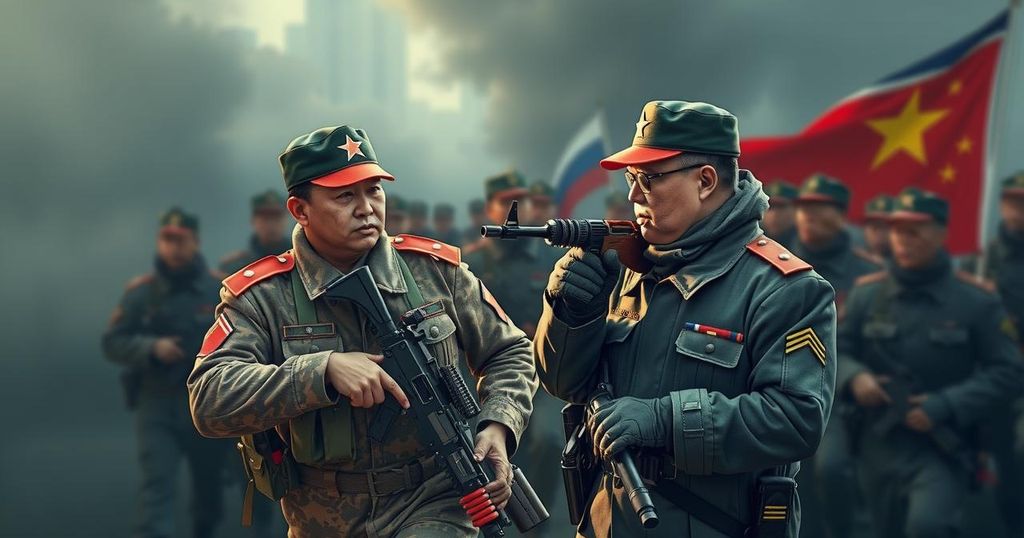North Korea’s Military Support for Russia: A Shift in Chinese Sentiment

In recent weeks, North Korea’s decision to assist Russia in Ukraine has transformed its image among the Chinese public from that of a derided neighbor to a respected ally. Historical criticism of its erratic regime and poverty gave way to admiration in the context of geopolitical alliances, highlighting the fluidity of public sentiment influenced by international events.
In recent weeks, public perception of North Korea within China has undergone a notable transformation. Previously viewed with derision as a disruptive neighbor, North Korea is now lauded for its decision to send troops to support Russia in its conflict with Ukraine. This shift highlights a complex dynamic in regional alliances and reflects changing sentiments among the Chinese populace towards their reclusive neighbor. During my nearly two decades in mainland China as a Beijing-based correspondent, I frequently encountered widespread criticism of North Korea. Conversations often recounted the regime’s unpredictable behavior, characterized by its reliance on Chinese aid while simultaneously posing significant threats to regional stability through its nuclear endeavors and missile testing. One Chinese bureaucrat aptly remarked, “What a shameless neighborhood hooligan,” encapsulating the general disdain felt by many towards the Kim regime. Moreover, notions of North Korean poverty and the regime’s negligence toward its citizens further fueled criticism. Reports indicated the regime’s priorities significantly favor enriching its leaders over addressing the basic needs of its populace, leading to severe starvation and suffering among its citizens. However, the recent military contributions to Russia have sparked admiration amongst segments of the Chinese public. This evolving attitude illustrates how geopolitical factors can shift perceptions, as cooperation against a shared adversary enhances North Korea’s image from a mere provocateur to an ally in a larger geopolitical struggle. Such sentiments raise questions about the future of Sino-North Korean relations and the potential for increased collaboration in the face of international pressures. The change in perspective illustrates the fluidity of public opinion as influenced by global events, showcasing a newfound respect for North Korea’s military posture within the regional context of conflict support. Ultimately, this phenomenon underscores the intricate interplay between regional alliances and public perception, signaling a potential reorientation in how China views North Korea. Should this trend continue, it could significantly alter diplomatic dynamics in East Asia as both nations find common ground in their respective challenges against the West.
The article examines the evolving attitudes of the Chinese public towards North Korea, particularly in light of North Korea’s recent military support for Russia amidst the Ukraine conflict. Historically, North Korea was often seen as a troublesome neighbor by the Chinese, who criticized its nuclear ambitions and economic difficulties. However, the geopolitical landscape shifts—prompted by North Korea’s decision to back Russia—are leading to renewed admiration for the formerly derided state. This shift signifies a deeper understanding of regional dynamics, where alliances are fluid and shaped by national interests.
In conclusion, the recent shift in Chinese attitudes towards North Korea demonstrates the significant impact of geopolitical events on public perception. North Korea’s military assistance to Russia has redefined its image from that of a neighborhood nuisance to a respected ally within the context of international conflict. As public opinion evolves, it remains crucial to observe how this newfound respect may influence future Sino-North Korean relations and the broader regional dynamics in East Asia. The changing narrative illustrates that perceptions can be transformed by actions taken in the arena of global politics, compelling a reevaluation of past judgments.
Original Source: www.scmp.com








